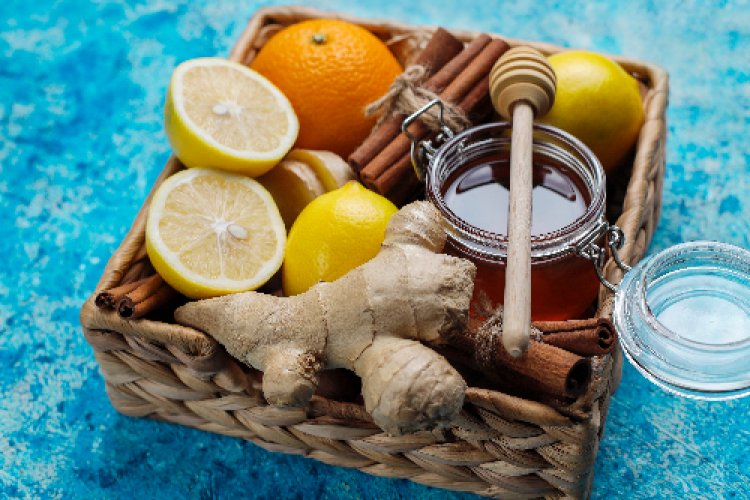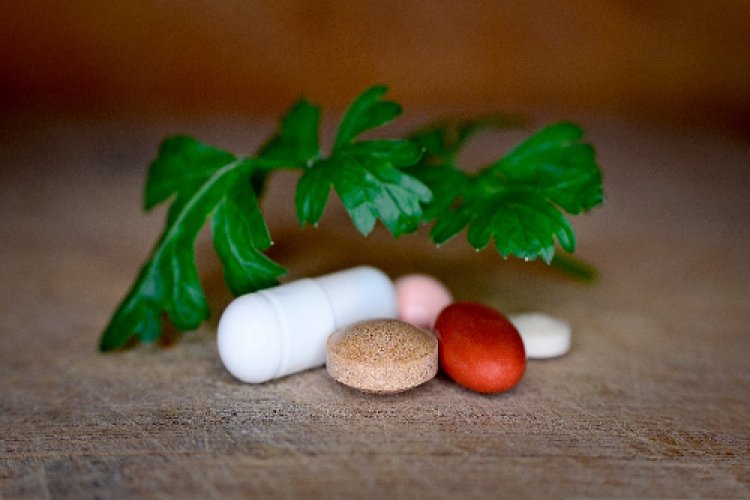Research[2022]:. Will all these things still help in boot your immunity?
In today's run-of-the-mill life, how to increase the immunity of your body from diseases caused by excessive pollution and how to improve your health. Read the instructions given below carefully
![Research[2022]:. Will all these things still help in boot your immunity?](https://quicknotification.com/uploads/images/202210/image_750x_63477b71cbc15.jpg)
Image by BalashMirzabey on Freepik
Helpful ways to strengthen your physical strength and fight disease
How can one strengthen their immune system? In general, your immune system does an excellent job of protecting you from pathogenic microbes. However, sometimes it fails and a germ has effectively infiltrated, making you sick. Is it possible to influence this process and strengthen your immunity? What if you change the way you eat? Take specific supplements or herbal remedies? What other changes should you make to your way of life to boost your immune system almost to the fullest?
-

Image by starline on Freepik
What can you do to boost your immunity system?
-
It's appealing to think about increasing immunity, but doing so has proven difficult for several reasons. The immune system is just that—a system, not a single entity. It needs harmony and balance to work properly. Regarding the complexities and connections of the immune response, researchers still don't fully understand them. Currently, there is no evidence to support a direct causal relationship between lifestyle and improved immune function.
But that does not mean the goods of life in the vulnerable system are not interesting and should not be studied. Experimenters are exploring the goods of diet, exercise, age, cerebral stress, and other factors on the vulnerable response, both in creatures and in humans. In the meantime, general healthy-living strategies make sense since they probably help vulnerable function and they come with other proven health benefits.
-

Image by Freepik
Some healthy tips to strengthen your immune system
-
Your first line of survival is choosing a healthy lifestyle. Following a generally good-healthy approach is one of the best steps you can take to naturally keep your immune system on the path of functioning properly in every part of your body. Your immune system, including your immune system, works best when protected from environmental damage and strengthened in healthy ways:
1. Give up smoking.
2. Consume a lot of fruit and vegetables in your diet.
3. Regularly go to the gym.
4. Keep a suitable weight.
5. If you do consume alcohol, do so sparingly.
6. Get enough rest.
7. Take precautions against illness by regularly washing your hands and properly preparing meat.
8. Strive to reduce stress.
9. Continue receiving all immunizations that are advised. Immune systems that have received vaccinations are better prepared to fend off diseases before they become chronic.
-

Image by Freepik
Boost immunity in a healthy way.
-
Numerous items on store shelves claim to strengthen or improve immunity. But from a scientific standpoint, the idea of increasing immunity is very illogical. In actuality, increasing the number of cells in your body, whether they are immune cells or other types, is not always a good thing. Strokes, for instance, are a risk for athletes who use "blood doping," which involves pumping blood into their bodies to increase the number of blood cells and improve performance.
Because the immune system is made up of so many different types of cells and reacts to germs in so many different ways, trying to increase your immune system's cells is particularly difficult. Which cells, and how many, should you promote? Scientists have not yet discovered the solution to this. What is known is that our bodies constantly produce immune cells to defend themselves and establish their unique operating procedures. For the immune system to perform at its best, no one is yet certain how many cells or what type of cells are ideal.
-

Image by starline on Freepik
Immune systems and age
-
As we age, our immune response decreases with time, resulting in more infections and cancerous hazards that contribute to making us sicker and more ill. As life expectancy continues to increase in developed countries, so do rates of age-related conditions and diseases.
While some individuals have healthy lifespans, many studies conclude that, compared to younger individuals, elderly individuals are more likely to contract infectious diseases and even, very significantly, die from those infections. go. There are many possibilities. Metabolic infections, including influenza, the COVID-19 virus, and particularly the respiratory disorders area unit, have been a leading cause of death in more than 65 percent of individuals worldwide. Needless to say why this happens, however, some scientists believe that this risk is associated with a decrease in T cells, possibly depleting the thymus with age and less T to fight infection. building cells. Due to this such problems are being faced. Whether this reduction in thymus function explains the invasiveness of T cells or whether individual changes play a function is not understood. Others are interested in whether the bone marrow becomes less economical in producing the stem cells that make up the system's cells.
The way elderly people react to vaccination suggests that their immune response to diseases has declined. For example, research on influenza vaccines has shown that it is less effective for adults over 65 years of age than for younger children (over 2 years old). But despite declining effectiveness, vaccination against influenza and S. pneumonia significantly reduced the incidence of illness and death in elderly individuals compared to non-vaccination.
In older people, there seems to be a link between nutrition and immunity. "Micronutrient malnutrition" is a type of malnutrition that is surprisingly widespread, especially in wealthy nations. Elderly people are susceptible to micronutrient malnutrition, a condition in which a person is lacking in some critical vitamins and trace minerals that are derived from or supplemented by diet. Older folks typically consume less and frequently have less varied diets. Is it possible for dietary supplements to support older people's immune systems is a crucial subject. Older patients should speak with their doctor about this issue.
-

Image by BalashMirzabey on Freepik
Your immune system's dependence on your diet!
-
Healthy immune system warriors require regular, quality nutrition, which is dependent upon our good eating habits. Scientists have known for a long time that those who are undernourished and living in poverty are more susceptible to infectious diseases. Researchers do not yet know whether a certain dietary element, such as eating processed foods or consuming a lot of simple sugar, can negatively impact our immune system. The effects of nutrition on the human immune system are still only partially understood through research.
According to several kinds of research, deficiencies of certain micronutrients such as vitamins A, B6, C, and E, folic acid, zinc, selenium, iron, copper, and selenium have been tested in test animals and as a result of this study. Significant changes in their immune response have been recorded and some sensitive effects on their health have been observed. But research is still needed to identify how comparable immune system deficiencies affect human immune responses, as less information is available about how these immune systems affect the health of humans.
What can you do then? If you find that your diet isn't meeting all of your micronutrient needs -- perhaps because you don't enjoy vegetables -- taking a daily multivitamin and mineral supplement may also provide additional health benefits to any potential immune system. But megadosing does not work on a single vitamin. is not always better.
-

Image by JerzyGorecki from Pixabay
Is it possible to improve immunity with herbs and supplements?
-
If you enter a store, you will see bottles of herbal remedies and tablets that advertise that they "promote immunity" or otherwise improve the health of your immune system. There is no proof to date that any preparations increase immunity to the point where you are better protected against illness and infection, even though some of them have been discovered to affect some immune function components. It is still very difficult to prove that a plant, or any drug for that matter, can improve immunity. For instance, researchers are unsure of the potential benefits of a herb that appears to increase blood antibody levels on immune function.
-

Image by kjpargeter on Freepik
Your stress and immune function
-
Modern medicine has learned to recognize the interconnectedness of the mind and body. Emotional stress has been related to a wide range of illnesses, such as heart disease, rashes, and stomach distress. Despite the difficulties, researchers are working hard to understand how stress affects immune system performance.
stress is hard to describe for starters. A scenario that may seem stressful to one person may not be to another. When people are subjected to situations they perceive as stressful, it can be challenging for them to measure their stress levels, and it can be challenging for scientists to determine whether a subjective assessment of a person's stress levels is accurate. Yes or No. Only variables that represent stress can be measured by scientists, such as the frequency of heartbeats per minute, although these variables can be reflected by other measurements as well.
However, most scientists who research the link between stress and immune function focus on chronic stress rather than abrupt, transient stressors, such as those brought on by interactions with family, friends, and coworkers or persistent difficulties in performing effectively at one's job. Some researchers are looking at whether sustained stress weakens the immune system.
But it is challenging to do what scientists call "controlled trials" on people. In a controlled experiment, the scientist may change only one variable, such as the amount of a certain chemical, and then observe how the change affects other observable phenomena, such as the number of antibodies made by a specific type. number. When it comes in contact with chemicals. immune system cells. This type of control cannot be exercised over a living thing, especially a human being, because the animal or person is experiencing many other things at the time the measurement is being made. Despite these inevitable difficulties in measuring the relationship of stress to immunity, scientists are making progress in their research and study results day by day.
-

Image by katemangostar on Freepik
Does a cold weaken your immune system?
-
"Wear a heat jacket or you will catch a cold", is the recommendation each momma has ever said. - Is he right?
most likely not; Exposure to even cold temperatures does not affect the U.S., it affects however inclined you're to unhealthiness. Winter is "cold and respiratory disease season" thanks to 2 factors. folks pay longer inside and shut to every alternative throughout the winter months, which will increase the danger of infection. The air is cooler and less wet, that additionally implies that the respiratory disease virus stays within the atmosphere longer.
However, this issue continues to pique the interest of researchers in many communities. According to certain studies done on mice, exposure to cold may lower one's body's resistance to infection. What about people, though? Scientists have conducted tests in which participants were momentarily submerged in chilly water or exposed briefly to below-freezing temperatures while nude. Both individuals who resided in Antarctica and those who participated in Canadian Rockies excursions have been researched. Mixed outcomes have been obtained. For instance, researchers discovered a rise in upper respiratory infections in competitive cross-country skiers who engage in strenuous exercise in the cold. However, it is unclear whether these infections are brought on by the cold specifically or by other elements like intense exercise or the dryness of the air.
The human immune system is not adversely affected by mild cold exposure, according to a group of Canadian academics who have studied hundreds of medical publications on the issue and done some of their studies. When the weather is chilly, should you dress warmly? If you're uncomfortable or planning to spend a lot of time outdoors, when conditions like hypothermia and frostbite pose a risk, the answer is "yes." Immunity, though, is unimportant.
-

Image by javi_indy on Freepik
Exercise: Effects on the Immune System?
-
One of the cornerstones of healthy life is regular exercise. It enhances cardiovascular health, reduces blood pressure, aids in weight management, and guards against several disorders. But does maintain and boosting your immune system naturally help? Exercise, like a wholesome diet, may support overall health and, by extension, a strong immune system.
Disclaimer: "Quick Notification" gives readers access to our collection of previously published articles as a courtesy. Please take note of the date when each article was last updated or reviewed.No information on this website, regardless of when it was published, should ever be considered as a replacement for specific medical advice from your doctor or another licensed healthcare provider.



 Quicknotification
Quicknotification 







![Research[2022]:. Will all these things still help in boot your immunity?](https://quicknotification.com/uploads/images/202210/image_380x226_63477b71e354d.jpg)